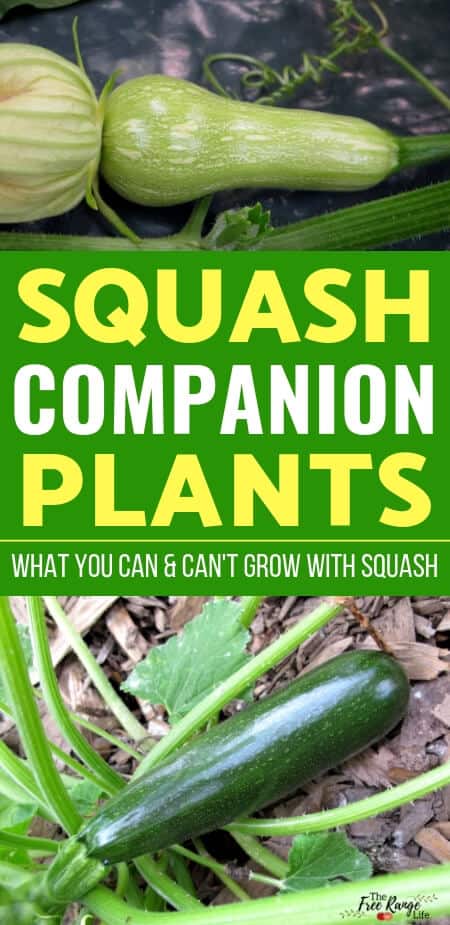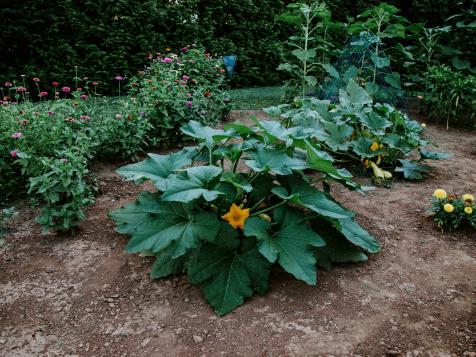Grow Bigger Better Butternut Squash With Companion Planting
Grow Bigger Better Butternut Squash with Companion Planting
Butternut squash is a delicious and versatile winter squash that can be enjoyed in a variety of dishes. It's also a relatively easy crop to grow, but there are a few things you can do to help ensure a bountiful harvest. One of the best ways to improve your chances of success is to use companion planting.
Companion planting is a gardening technique that involves planting certain crops together in order to benefit each other. There are many different companion plants that can be beneficial for butternut squash, but some of the most popular include:
- Beans: Beans are nitrogen-fixing plants, which means they can help to improve the nitrogen content of the soil. This is beneficial for butternut squash, as it is a heavy feeder.
- Carrots: Carrots help to repel pests such as carrot rust flies and nematodes. This can help to protect your butternut squash plants from damage.
- Cucumbers: Cucumbers and butternut squash have similar growing requirements, so they can be planted together to save space. They also help to attract beneficial insects, such as ladybugs, which can help to control pests.
- Herbs: There are many herbs that can be beneficial for butternut squash, including oregano, basil, and rosemary. These herbs help to attract beneficial insects, repel pests, and improve the flavor of the squash.
In addition to planting companion plants, there are a few other things you can do to help grow bigger, better butternut squash. These include:
- Plant in full sun: Butternut squash needs full sun in order to produce a good harvest.
- Water regularly: Butternut squash is a thirsty plant, so it's important to water it regularly, especially during the hot summer months.
- Fertilize regularly: Butternut squash is a heavy feeder, so it's important to fertilize it regularly. Use a balanced fertilizer, such as a 10-10-10 fertilizer, and apply it every 2-3 weeks.
- Mulch around the plants: Mulching around the plants will help to retain moisture and suppress weeds.
- Pest and disease control: Keep an eye out for pests and diseases, and take steps to control them as soon as possible.
By following these tips, you can grow bigger, better butternut squash in your garden.
Butternut squash is a delicious and versatile winter squash that can be enjoyed in a variety of dishes. But did you know that companion planting can help you grow bigger, healthier squash?
Companion planting is the practice of planting certain plants together to benefit each other. For example, some good companion plants for butternut squash include beans, corn, marigolds, and nasturtiums.
Beans help to fix nitrogen in the soil, which is essential for healthy plant growth. Corn provides shade for the squash plants, which can help to protect them from pests and diseases. Marigolds and nasturtiums deter pests, such as squash bugs and aphids.
If you're interested in learning more about companion planting butternut squash, I recommend visiting the Garden Wiki. This website has a wealth of information on the topic, including a list of recommended companion plants, tips for planting, and troubleshooting advice.
FAQ of companion planting butternut squash
Q: What are some good companion plants for butternut squash?
A: Some good companion plants for butternut squash include:
- Beans: Beans are nitrogen-fixing plants, which means they can help to improve the soil for your squash plants. They also provide shade for the squash plants, which can help to prevent them from getting sunburned.
- Corn: Corn provides a sturdy support for the squash plants to climb, and it also helps to attract pollinators.
- Marigolds: Marigolds help to repel pests, such as squash bugs and aphids.
- Nasturtiums: Nasturtiums also help to repel pests, and they can also attract beneficial insects, such as ladybugs.
- Sunflowers: Sunflowers help to attract pollinators, and they can also provide shade for the squash plants.
Q: What are some plants that should not be planted near butternut squash?
A: Some plants that should not be planted near butternut squash include:
- Eggplant: Eggplant is susceptible to the same pests and diseases as squash, so planting them together can increase the risk of problems.
- Melons: Melons and squash are both members of the cucurbit family, and they can compete for resources.
- Potatoes: Potatoes can harbor pests that can also attack squash plants.
- Tomatoes: Tomatoes and squash can compete for nutrients and water.
Q: How far apart should I plant butternut squash and its companion plants?
A: The spacing requirements for butternut squash and its companion plants will vary depending on the specific plants involved. However, as a general rule, you should space butternut squash plants at least 3 feet apart, and you should space companion plants at least 1 foot apart.
Q: What are the benefits of companion planting butternut squash?
A: There are several benefits to companion planting butternut squash. Companion planting can help to:
- Improve soil quality
- Attract pollinators
- Repel pests
- Reduce the risk of disease
- Increase yields
Q: How do I get started with companion planting butternut squash?
A: There are a few things you need to do to get started with companion planting butternut squash:
- Choose the right companion plants.
- Space the plants appropriately.
- Plant the companion plants at the same time as the butternut squash plants.
- Monitor the plants for pests and diseases.
- Adjust the spacing as needed.
Image of companion planting butternut squash
- Butternut squash with beans and corn. This is a classic companion planting combination that has been used for centuries. The beans fix nitrogen in the soil, which benefits the squash, and the corn provides shade for the squash in the hot summer months.
- Butternut squash with marigolds. Marigolds are a great companion plant for squash because they help to repel pests. The marigolds' strong scent confuses and deters pests like squash bugs, aphids, and cucumber beetles.
- Butternut squash with herbs. Herbs like oregano, rosemary, and basil can also be good companion plants for squash. These herbs attract pollinators, which help to pollinate the squash flowers and produce more fruit.

- Butternut squash with flowers. Other flowers that can be good companion plants for squash include zinnias, sunflowers, and nasturtiums. These flowers attract pollinators and help to improve the overall health of the garden.

- Butternut squash with leafy greens. Leafy greens like lettuce, spinach, and kale can also be good companion plants for squash. These greens help to suppress weeds and shade the soil, which can help to keep the soil moist and cool.
Post a Comment for "Grow Bigger Better Butternut Squash With Companion Planting"